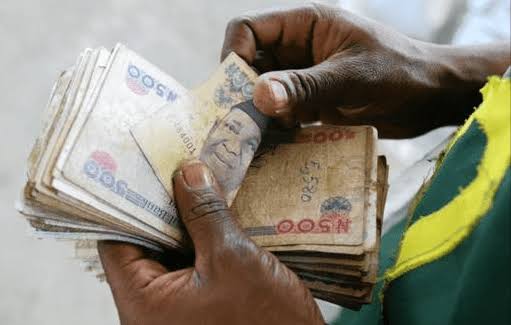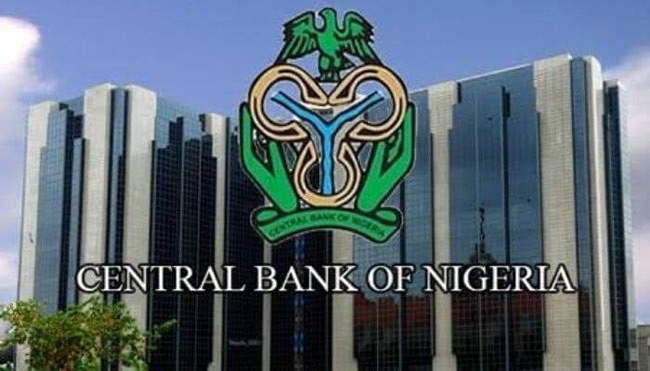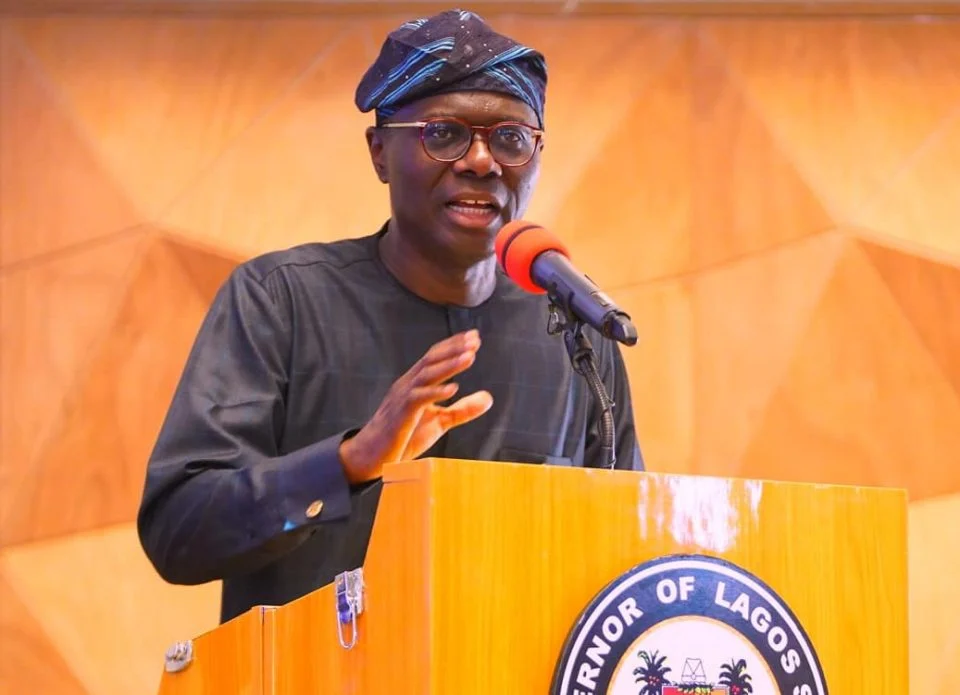Cash scarcity leaves shoppers, travellers stranded, ATMs, banking halls run dry
The acute scarcity of cash worsened on Friday, leaving many shoppers and travellers stranded and at the mercy of Points of Sales operators, who offered the small amounts of money available to them to desperate citizens for exorbitant fees.
Also on Friday, hundreds of intending passengers, who wanted to travel to different parts of the country for the Christmas and New Year festivities, were left stranded at train stations as the online ticketing portal of the Nigerian Railway Corporation suffered glitches due to an unprecedented rush.
The rush followed the announcement of free train rides for Nigerians travelling for the Yuletide by the Federal Government. Saturday PUNCH gathered that to qualify for the free rides, intending travellers had to book on the portal and the unprecedented number of people trying to book the rides made the portal suffer glitches.
At Automated Teller Machine galleries and banking halls in different parts of the country, desperate customers had difficulties getting cash, with bank workers having difficulty calming frayed nerves.
In Lagos, our correspondents report that customers besieged the few ATM galleries dispensing cash but the amount that could be withdrawn was restricted, while the same situation persisted in banking halls where cashiers limited the amount that each customer could withdraw over the counter to between N5,000 and N10,000.
At major motor parks, interstate travellers had a hectic time paying the fares as transport operators insisted on cash payment and desperate passengers resorted to patronising POS operators, who hiked their charges by over 100 per cent.
However, passengers, who took advantage of the Federal Government’s 50 per cent reduction of fares on select routes by qualified operators of luxury buses, commended the initiative and flooded many of the bus terminals.
Shoppers in various markets also battled high prices of foodstuffs and essential goods as well as cash scarcity, with many traders insisting on cash instead of electronic transfers for items purchased.
NRC explains glitches
The Managing Director, NRC, Fidet Okhiria, on Saturday, explained that whenever a train was filled, passengers who try to book tickets online would not be able to access the website.
He said the rush had been much since the government announced the free train rides and as such seats on NRC trains across the country had been fully booked.
Okhiria insisted that the NRC did not experience any downtime of the server, and stressed that passengers were unable to get tickets because the trains had been fully booked.
He said, “There is no downtime of our server; rather, the rush for tickets has been high and once the trains are fully booked, anyone who tries to access the website may not be able to get access to that train.
“We are implementing the directive of the government and we started it on the very day that we got the directive to start. We will continue to implement it as directed.”
The NRC boss urged passengers to keep trying, as the corporation was doing its best to handle the rush for tickets.
At the Mobolaji Johnson Station in Ebute Meta, on Friday, it was observed that the ticketing halls were largely empty as the train had departed at its scheduled time of 7am.
Passengers travelling to Abeokuta and Ibadan were required to book their tickets online, but it was gathered that the number of travellers on Friday exceeded the expected number, forcing the server to shut down.
Some passengers who did not book their tickets on time were seen loitering around the premises with their luggage as they had to wait till the next departure time.
One of the stranded passengers, Elijah Ajibola, told one of our correspondents, “Most of the passengers who boarded the train this morning had booked their tickets since Wednesday. I was not aware that there was an online portal where I had to register first until I got here this morning.
“I have been here since 6.47am and I witnessed the crowd here due to the free ride offered. I will say the number of passengers is unprecedented since I have been boarding the train to Ibadan. There were times I would get here by 7am yet I would still find a space on the train. Now, I have to wait till 4pm when the next train will depart.”
Another passenger at the station, Sunday Obatolu, complained, “Many of us here could not book our tickets and that is why you find some of us stranded here. I hope the situation will be resolved but we need to do these things right and be strategic about it.”
An official of the railway station, who declined to give his name, told Saturday PUNCH that the NRC did not anticipate that so many passengers would log onto the website.
“Yes, it’s true, our server was jammed but we are working on it, you can see that some people have deposited their luggage here. The issue will be resolved before the next train arrives,” he noted.
One of our correspondents, who visited the Agege Train Station in the Agege Local Government Area of Lagos State, gathered that the directive on train passengers was strictly adhered to as passengers trooped to the station in their numbers.
A staff member of the station (name withheld) told Saturday PUNCH that seats for today (Saturday) had been sold out as of 10am on Friday when one of our correspondents visited.
He explained that the train comprised three sections – first class, business, and standard class – each having 24, 56, and 88 seats, respectively.
He added, “As you can see, many people are eager to travel now because they know that there is a free train and of course, you should know that there will be a huge turnout. The seats for today (Friday) and tomorrow (Saturday) have been booked already and there is no more space. We don’t allow people without tickets inside the train because it will be congested and we don’t want that to happen.”
It was gathered that before the Federal Government’s directive, the train station charged N9,000, N6,500, N3,000 and N3,000 for first class, business, standard and minor, respectively for passengers travelling from Lagos to Ibadan.
A list displayed at the entrance of the station also indicated that N6,000, N4,500, N3,000, and N2,000, were charged for first class, business, standard, and minor passengers respectively travelling from Lagos to Abeokuta.
It was also gathered that the station often boarded passengers twice daily by 8.20am and 4.20pm.
Saturday PUNCH also observed that some of the passengers found it difficult to register on the E-ticketing website (nrc.gsds.ng) of the station.
An official in the station, who preferred anonymity, disclosed that the station was recording a huge turnout of passengers because of the free rides.
Acorps member travelling to Ibadan, Uthman Adebiyi, was excited about the free ride, which he noted encouraged him to patronise the train service, adding that it was a good initiative for Nigerians to enjoy during this festive period.
As of 9.30am at the Kubwa Train Station in Abuja, one of our correspondents reported that hundreds of passengers were waiting for the 10am train.
It was gathered that the train had been completely booked and the next train slated to depart at 3.25pm for Kaduna had also been fully booked.
Passengers, who attempted to obtain tickets at the departure gate, were left stranded, as officials insisted that tickets could only be obtained on the NRC portal.
However, those who attempted to obtain the tickets online at the scene stated that they had difficulties with registering.
A passenger, Beatrice, said she had made repeated attempts to get the tickets, but got messages that her details had been incorrectly filled in.
Some passengers, who obtained tickets online, however, complained that they were not allowed on the train despite having arrived early.
“I got here and they said we should write names and our NIN to board the train. Then the train arrived and some of the officers were collecting N500 to allow others to board a train that President BolaTinubu said is free,” a traveller, Usman Salami, said.
Passengers at the Idu Railway Station in Abuja expressed divergent views over compliance with the presidential directive by the NRC officials.
This was even as some of the passengers lamented their inability to access the tickets online, while others confirmed that they were able to get the tickets on Thursday.
An intending traveller, Mrs Franca Aaron, who arrived at the train station around 6am and had yet to be attended to around 11am when she angrily left for home, said she was unable to get the ticket online and was not sure if it was free.
A passenger, Halima Bala, who was travelling to Kano via Kaduna, said the ticket was free and accessible online, noting, “It was my son who did it for me as I can’t do it on my own; maybe because it is free now that it is difficult to access.”
The Operations Manager, Abuja-Kaduna Train Service, AbdulAziz Mohammed, said the turnout was above normal because of the free rides.
Mohammed said, “People can only travel with their tickets that were processed online; the tickets are accessible and there was no network glitch.
“If the total number of seats that are supposed to be accessed are exhausted, then people cannot access the ticket. We are running four trips today, two from Kaduna and two from Abuja.
“We have a capacity for the trains; the economy class carries 88 passengers; first-class carries 56 passengers; the VIP coach carries 24 passengers; and we convey between 600 and 700 passengers.”
When one of our correspondents visited the ATM gallery of Guaranty Trust Bank on Ogunnusi Road in Ojodu-Berger, Lagos, it was observed that only one of the six ATMs dispensed cash at a maximum of N10,000 per customer with other banks’ debit cards, and a maximum of N20,000 for holders of GTB debit cards. Going into the banking hall of the same bank, our correspondent was greeted with the sight of a long, curvy queue for customers, who wanted to make withdrawals and other transactions.
A customer, who gave his name only as Uche, told Saturday PUNCH that some customers had been frustrated, having to wait for so long, only to be told that N10,000 was the maximum amount they could withdraw.
“I have been to the bank three times today (Friday) and have not been able to execute my transactions. This third time, I have been in the queue for about 45 minutes now and I still have several people in front of me,” he stated.
A teller, who attended to customers over the counter, said, “The maximum amount that can be withdrawn by each customer over the counter is N10,000.”
At Zenith Bank in Ojodu-Berger, the ATM gallery was empty, as there was no cash in any of the eight ATMs in the gallery.
Inside the banking hall, it was observed that more people clustered around the counter for bank transfers and cash withdrawals over the counter.
A teller said, “There is a limit to cash withdrawal for all customers and the maximum withdrawal is N5,000 per customer. This is to help make the limited cash available to go round.
“I can’t say why there is cash scarcity, but all I can say now is that there is limited cash at hand now and customers are advised to make use of the electronic channels to pay bills and meet up with other needs this season.”
A similar situation was observed at First Bank and UBA branches in the Alausa area as the ATM channels were not dispensing cash, while customers were limited to N5,000 over the counter.
At the UBA, Access Bank and First Bank branches in Ibafo, Ogun State, desperate customers struggled to withdraw N10,000 from the ATM galleries, while those who were allowed inside the banking halls by security guards could not withdraw more than N10,000.
The ATMs at the Zenith Bank inside the Redemption City were not functioning as a security guard said the machines were out of cash but withdrawals can be carried out over the counter. It was however discovered that the maximum amount customers could withdraw was N20,000.
However, at the UBA branch inside the city, there was a long queue at the ATM gallery, while many customers sat under a canopy waiting to go inside the banking hall, where N10,000 was the maximum amount that could be withdrawn, with a cashier telling one of our correspondents that only lower denominations of N50, N100, and N200 were available.
A PoS operator at the FCT administrative office in Area 11, Abuja, stated that although she was oblivious of whatever was responsible for the shortage of cash, she decided to continue to collect regular charges even though she “buys” the money.
“I bought N100,000 for N2,000. Some people charge as much as N150 and N200 to collect amounts like N3,000. Some even charge up to N400 for N6,000. I still charge N100,” she said.
Another PoS operator, Mrs Helen, said she had no choice but to increase the charges because of the increasing difficulty with getting cash.
“My brother, ATMs won’t dispense more than N20,000. Banks won’t give you more than N10,000 over the counter. Let’s say you now find money changers to give you cash, they charge you exorbitantly too. So what do you do?” she said.
In Lagos and Ogun states, the few POS operators who had naira notes to give to customers were charging between N400 and N600 for every N10,000, while most of them limited withdrawals to N5,000.
Meanwhile, the Central Bank of Nigeria has said the ongoing cash scarcity is due to collusion between PoS operators and Deposit Money Banks.
The reaction was contained in a statement signed by the acting Director of Communication and Public Relations, Sidi Ali on Thursday.
While warning the culprits to desist from such acts as it puts the nation in a bad light and harsh economic situation, it encouraged Nigerians to use alternative payment methods such as electronic transfers.
Ali also encouraged Nigerians to channel their complaints via a digital form on the CBN website.
A professor of Management and Entrepreneurship at the Prince Abubakar Audu University, Kogi State, John Alabi, said the apex bank should have been more proactive to tackle the cash scarcity, noting that the build-up to the scarcity was early enough.
He also advised the apex bank to quickly address the internal framework within its institution that could have affected the circulation of cash, while also encouraging it to release more naira notes to the public.
Traders, buyers lament
About 48 hours to Christmas, many housewives and traders lamented the escalating prices of basic commodities, including foodstuffs, soup ingredients, clothes, and footwear, among others, even amid naira shortage.
A meat seller in Magboro, Ogun State, Mr Kamarudeen Bolalanta, disclosed that cow head, which sold for between N15,000 and N20,000 earlier in the year, attracted between N35,000 and N70,000 on Friday.
A trader, Mrs Alaba Aishat, said a small basket of tomatoes was now selling for N10,000 instead of N8,000, while a bag of pepper was sold for N13,000 instead of N7,000. Similarly, the price of a bag of onions increased to N150,000 from N50,000.
Cockerel sold for N10,000 on Friday instead of N5,000 previously, while a layer sold for N5,000 from N3,500 last year. A crate of eggs sold for N3,000 from N1,800.
A frozen food dealer, Alfa Wasiu, disclosed that the price of Kote fish had risen from N1,800 to N2,200 and Titus fish, which sold for N2,700 before now, was now selling for N3,200. While one kilogram of chicken increased to N3,800 from N2,800.
“A carton of chicken is sold for N33,000 for less than 10 kilograms. You can imagine we bought it for N30,000 two days ago, but today (Friday) it has increased. How are we going to sell it?” Wasiu queried.
A foodstuffs trader, Oluwabukola Olatilewa, disclosed that 10 kilograms of Semovita, which sold last year for N3,500, was now selling for N10,500 and a measure of white garri was selling for N1,600 instead of N500. Also, one paint rubber of rice formerly sold for N2,500, but now sells for N5,000, while the same measurement of beans, which was sold for N2,200 before, now sells for N4,200.
According to a yam trader, the price of 120 pieces she bought for N80,000 before has increased to N120,000 as a tuber now sells for N1,200 instead of N800 previously. She lamented that the scarcity of naira had affected patronage, making it difficult to increase the price of her product.
Bus fares rise
Intending travellers at various bus terminals in Jibowu, Lagos, complained about how much they had to pay for bus fares. This is despite the presidential declaration of a 50 per cent slash in fares at selected travel companies.
Findings by Saturday PUNCH revealed that bus fares were constantly rising, with tickets going for an average of N32,000 for a trip to states in the South-East region.
One of the travellers headed for Enugu told one of our correspondents that she paid N32,500 on Friday.
Inquiries made at the bus companies supposedly participating in the fare slash by the government showed that there had been no reduction in fares. Rather workers at the various parks said the fares would still go up with the drivers warning that the prices were not fixed as they would be jerked up and tickets could not be bought in advance.
At Young Shall Grow terminus, the drivers ridiculed the presidential initiative, insisting that what was needed was a reduction in the pump price of fuel.
One of the drivers retorted while haggling about the charges for the luggage of some of the travellers that no such order had been given to them.
At the GUO Transport terminus, the drivers queried if it was the government that established the company. A worker at the station asked, “How does the government expect us to reduce our fares? They increased the price of fuel and now expect us to reduce our price. It is not possible.”
However, on the GIG mobility app, the fare to the South-East hovers around N40,000 with a 50 per cent discount being offered. An advert banner on the company’s booking website announces, “Introducing 50% discount off all your GIGM ticket fee back in cash at any GIGM terminal courtesy to the Presidential Travel Relief Initiative programme.:
An attempt to complete a random reservation to Aba for Sunday showed the fare as N42,700 with a 50 per cent discount of N21,350. But at the point of payment, the fare remained N42,700.
Explaining this, a customer service executive said payment online would have to be made in full and on the day of the trip, the passenger would be refunded half of the fare in cash or via transfer.
Meanwhile, some passengers who spoke with our correspondent said they were not enthusiastic about the discount as the price of the tickets remained very high.
At the Jabi Motor Park, Abuja, transport fares to Lokoja, Kogi State, which cost an average of N4,000 three weeks ago, was N7,000 on Friday, while Abuja to Zaria was N6,000 and Abuja to Ibadan was N22,100.








